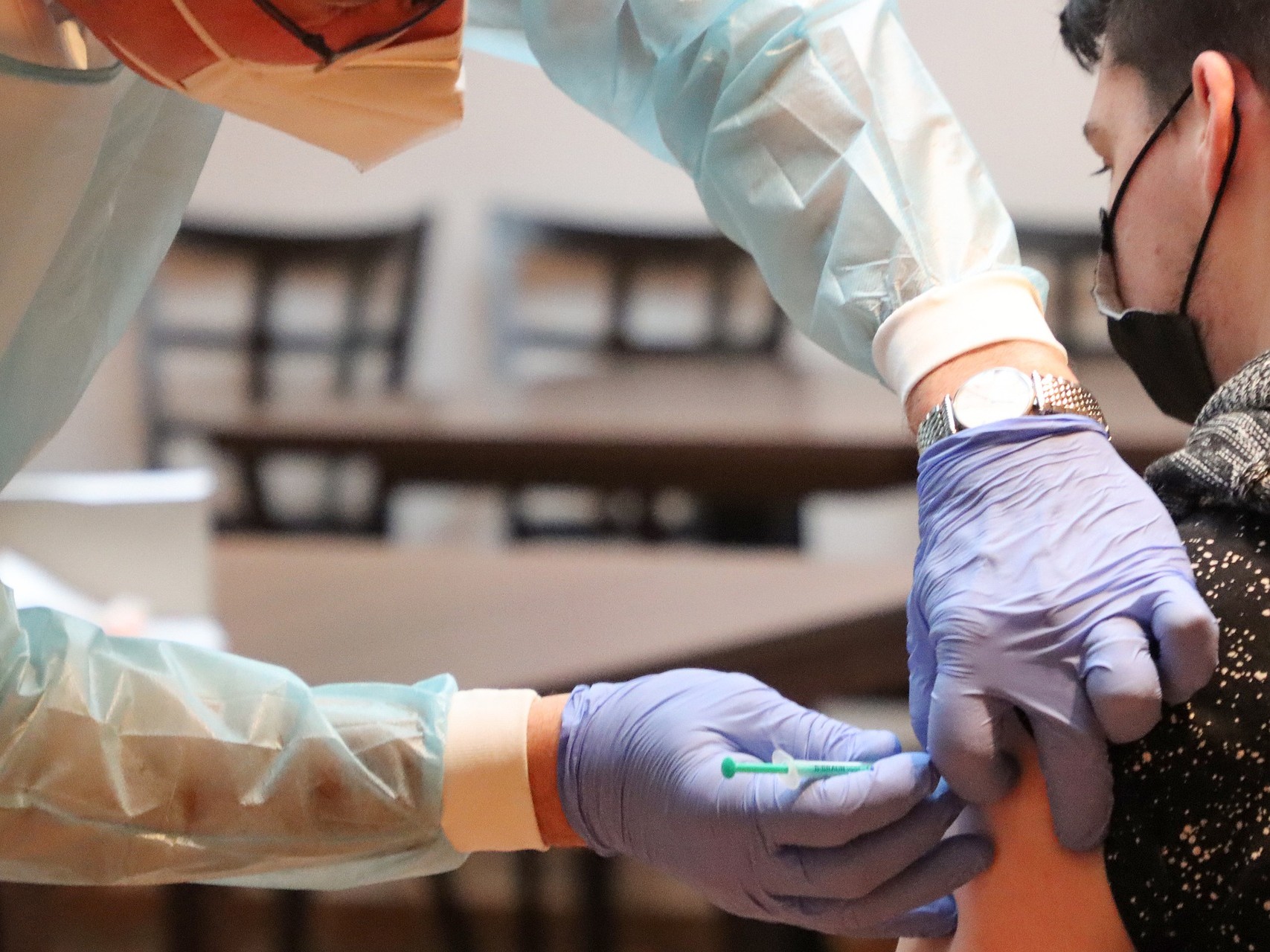

Vaccines against COVID-19, while protective against hospitalization and death, may not be great at preventing long COVID after breakthrough infections, a new study finds.
Epidemiologists associated with the US Department of Veteran Affairs looked at the medical records of 13 million individuals—mostly white male veterans aged 60 on average—including almost 34,000 who experienced breakthrough COVID-19 infections after vaccination. They found that while being vaccinated greatly reduces risk of hospitalization and death, vaccines only reduce the risk of long COVID by about 15 percent, as the researchers reported in a paper published on Wednesday in Nature Medicine.
Vaccinated individuals experiencing breakthrough infections were protected from certain symptoms, like blood clots and lung disorders. But there was no difference between the vaccinated and unvaccinated when it came to longer-term risks of infection, which include neurological issues, gastrointestinal symptoms, kidney failure, and other conditions.
“This was disappointing,” Ziyad Al-Aly, lead author and chief of research and development service at VA Saint Louis Health Care System, told The Washington Post. “I was hoping to see that vaccines offer more protection, especially given that vaccines are our only line of defense nowadays.”
In the new study, 32 percent of vaccinated veterans had long COVID symptoms up to six months after their breakthrough infection, compared to 36 percent of unvaccinated veterans with COVID. The Centers for Disease Control and Prevention released a report on Tuesday estimating that “COVID-19 survivors have twice the risk for developing pulmonary embolism or respiratory conditions” compared to uninfected people.
Al-Aly also told the AP that the study authors conducted this study before booster shots were available to the public, and before the rise of the Omicron variant. The breakthrough infection rate is therefore probably higher than the 1 percent their study suggests, and it’s unclear how boosters impact the risk of long-term symptoms. It’s important to note, however, that the vaccine does in fact reduce your chance of getting long COVID, as it makes you less likely to catch the virus in the first place.
Al-Aly also mentioned that breakthrough infections and long COVID symptoms were more common among those who received Johnson & Johnson’s single-dose shot compared with two doses of either Moderna or Pfizer vaccines.
[Related: A new kind of COVID vaccine could soon be available internationally]
The causes and potential treatments of long COVID are still largely unknown. There have been more than 83 million COVID-19 infections in the United States alone, and even if just a small percentage of those infected develop long COVID, “that’s a staggeringly high number of people affected by a disease that remains mysterious,” Al Aly told Nature.
While this new paper offers some information, the medical reports used in this research were from so early in the pandemic—from January to October 2021, when Delta was the largely dominant variant—that the findings clearly come with many limitations. Steven Deeks, an HIV researcher at the University of California, San Francisco, who was not involved in the study, pointed out to Nature that “we have no data on whether Omicron causes long COVID,” and so the findings “apply to a pandemic that has changed dramatically.”
“We don’t have a definition, we don’t have a biomarker, we don’t have an imaging test, a mechanism or a treatment,” Deeks added. “We just have questions.”
Demystifying long COVID through research specifically aimed to find its causes and possible interventions is direly needed for those now living with protracted symptoms. “We need continued research specifically on long COVID so specific therapies can be developed,” Greg Vanichkachorn, director of the Mayo Clinic’s COVID Activity Rehabilitation Program in Rochester, Minnesota, who was not involved with the new study, told NBC. But right now there’s only one good long COVID prevention method: “the best way to not get long COVID is not to get COVID,” said Vanichkachorn. And one of the best ways to not get COVID is to get vaccinated.
